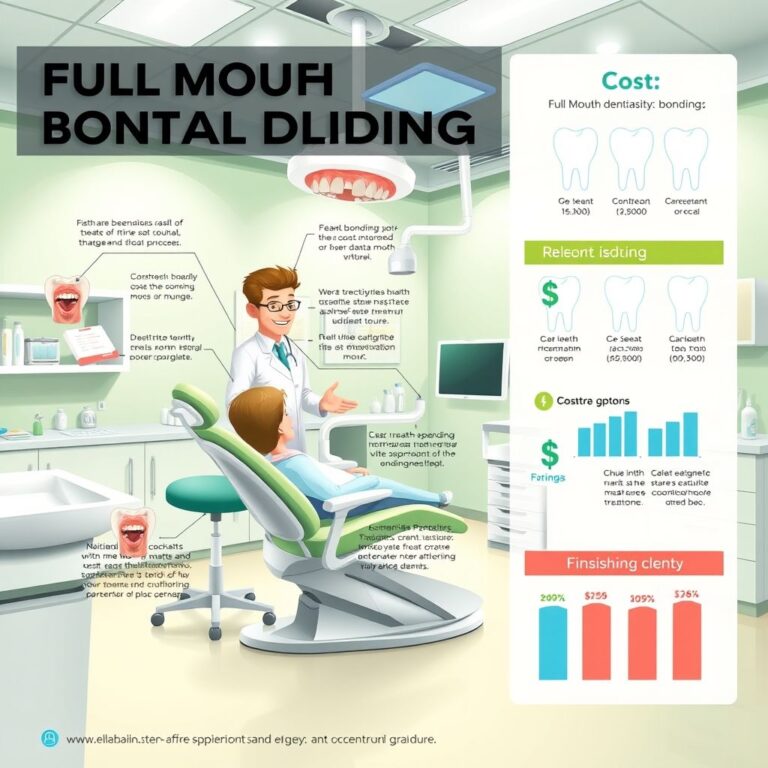Dental Bonding Cost in the UK: A Comprehensive Guide
A bright, confident smile can transform your appearance and self-esteem. However, chips, gaps, discolouration, or misaligned teeth can make you hesitant to smile. Fortunately, dental bonding offers an affordable, non-invasive solution to enhance your teeth without extensive procedures.
But how much does dental bonding cost in the UK? Prices vary based on materials, dentist expertise, and location. This exclusive, in-depth guide covers everything you need to know—from procedure details to pricing, aftercare, and alternatives—helping you make an informed decision.

2. What Is Dental Bonding?
Dental bonding is a cosmetic dentistry procedure where a tooth-coloured resin material is applied to teeth, then hardened with a UV light. It’s used to:
-
Repair chipped or cracked teeth
-
Close gaps between teeth
-
Improve tooth discolouration
-
Reshape misaligned or uneven teeth
-
Protect exposed tooth roots (due to receding gums)
Unlike veneers or crowns, bonding is minimally invasive, often requiring little to no enamel removal.
3. Types of Dental Bonding
A. Composite Bonding
-
Made from tooth-coloured resin
-
Applied in one visit
-
Cheaper but less durable than porcelain
B. Porcelain Bonding (Veneers)
-
More stain-resistant & durable
-
Requires two visits (lab fabrication)
-
Higher cost but longer-lasting
4. Why Choose Dental Bonding?
Benefits:
✅ Quick & Painless (30–60 mins per tooth)
✅ Affordable compared to veneers/crowns
✅ Minimal Tooth Alteration (preserves enamel)
✅ Instant Aesthetic Improvement
Limitations:
❌ Less Durable (lasts 5–10 years vs. 10–15 for veneers)
❌ Stains Over Time (coffee, tea, smoking)
❌ Not Ideal for Major Repairs
5. Dental Bonding Procedure: Step-by-Step
-
Consultation – Dentist examines teeth and discusses goals.
-
Tooth Preparation – Light etching for better resin adhesion.
-
Bonding Application – Resin is moulded onto the tooth.
-
Curing – UV light hardens the material.
-
Polishing – Final shaping for a natural look.
No anaesthesia needed unless treating decay.
6. How Much Does Dental Bonding Cost in the UK?
Average Costs (2024)
| Type | Price Per Tooth (UK) |
|---|---|
| Composite Bonding | £100 – £400 |
| Porcelain Veneers | £400 – £1,200 |
Factors Affecting Cost:
-
Location (London is 20–30% pricier)
-
Dentist’s Experience (specialists charge more)
-
Number of Teeth (discounts for multiple teeth)
-
Material Used (composite vs. porcelain)
NHS vs. Private Costs
-
NHS: Only covers bonding for medical reasons (e.g., decay), not cosmetic.
-
Private: Full cosmetic bonding available at higher costs.
7. Dental Bonding vs. Veneers vs. Crowns
| Feature | Bonding | Veneers | Crowns |
|---|---|---|---|
| Cost (Per Tooth) | £100–£400 | £400–£1,200 | £500–£1,500 |
| Durability | 5–10 years | 10–15 years | 15+ years |
| Procedure Time | 1 visit | 2 visits | 2 visits |
| Tooth Prep | Minimal | Moderate | Extensive |
Best for:
-
Bonding – Minor fixes, budget-friendly
-
Veneers – Long-term stain resistance
-
Crowns – Severely damaged teeth
8. Does Dental Insurance Cover Bonding?
Most UK dental insurance plans do not cover cosmetic bonding. However, if bonding is done for structural repair (e.g., filling a cavity), partial coverage may apply.
9. How Long Does Dental Bonding Last?
-
Composite Bonding: 5–7 years (with proper care)
-
Porcelain Veneers: 10–15 years
Avoid chewing ice, hard foods, or using teeth as tools to extend lifespan.
10. Aftercare & Maintenance Tips
✔ Brush & Floss Regularly
✔ Avoid Staining Foods (coffee, red wine, berries)
✔ Quit Smoking (causes yellowing)
✔ Wear a Mouthguard if grinding teeth
✔ Visit Dentist Every 6 Months
11. Risks & Potential Complications
-
Chipping or Cracking (if biting hard objects)
-
Staining (over time)
-
Allergic Reactions (rare, to resin materials)
12. Finding the Best Dentist for Dental Bonding in the UK
-
Check before-and-after photos of past work
-
Read patient reviews (Trustpilot, Google)
-
Verify dentist credentials (GDC-registered)
-
Compare prices & payment plans
13. FAQs About Dental Bonding
Q1: Is dental bonding painful?
No, it’s painless unless treating decay (local anaesthesia may be used).
Q2: Can bonding fix crooked teeth?
Yes, but for severe misalignment, braces/Invisalign may be better.
Q3: How soon can I eat after bonding?
You can eat immediately, but avoid hard/sticky foods for 24 hours.
Q4: Can I whiten bonded teeth?
No, bonding doesn’t respond to whitening. Whitening should be done before bonding.
Q5: Can bonding be removed?
Yes, but it may require polishing or replacement.
14. Conclusion
Dental bonding is a quick, affordable, and effective cosmetic treatment for minor dental flaws. Costs in the UK range from £100–£400 per tooth, depending on materials and location. While not as durable as veneers, bonding offers a non-invasive, budget-friendly way to enhance your smile. Always choose an experienced dentist and follow aftercare tips for long-lasting results.


